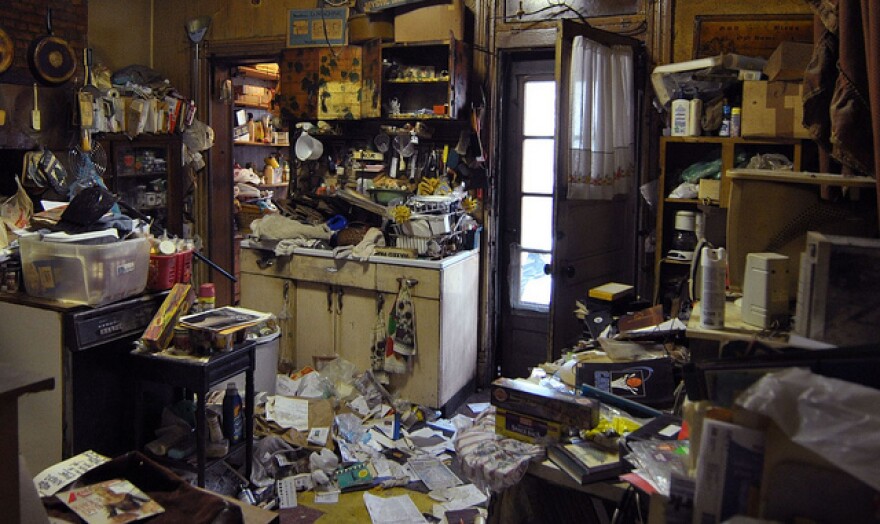Everyone has something they can’t quite let go, whether it’s all the back issues of their favorite magazine or their favorite sweater from 2003 that no longer fits. What happens when this feeling spreads to many other items as well, to the point where it starts to not only compromise your home, but your daily life as well.
The recent popularity of the A&E reality television show Hoarders has opened up a national conversation on the topic of compulsive hoarding, which many are starting to realize can be a serious psychological issue rather than just a strong feeling of nostalgia towards physical items.
This week on Take Care, Dr. Robin Zasio talks about compulsive hoarding and the treatment process for it. Dr. Zasio is a clinical psychologist that specializes in anxiety disorders. Shehas appeared on Hoarders, and is the author of the book “The Hoarder in You: How to Live a Happier, Healthier, and Uncluttered Life.”
Click 'Read More' to hear our interview with Dr. Robin Zasio.
Dr. Zasio defines compulsive hoarding when a person is “holding on to things, and so many things that it’s beginning to take over parts of the home—that there’s areas of the home that cannot be used for the purpose in which they’re intended. And I think a really key factor is that it’s beginning to interfere with their life in some way.”
While compulsive hoarding can range from mild to severe, the results of it can affect a person’s behavior. “They can’t find things, they are starting to get grouchy and irritable because they’ve misplaced things, or other people can’t find things. It can start to interfere with their ability to be on time for work or to get to other appointments on time because of the disorganization that happens.” Another symptom that may occur is depression due to a feeling of isolation, as people may not feel comfortable inviting others over to their home.
On the other hand, Dr. Zasio notes that some people that are compulsive hoarders may act “normal” in environments such as the workplace, causing some to believe there is no problem.
“Often times the reason for that is they recognize there is a level of responsibility in their work environment—or potential problems, whether it’s write-ups or even being fired if they’re not organized enough to do their job. There’s some kind of separation that we’ll see where they can go to work or go to other places and make good decisions, but when it comes to their own home, it becomes problematic,” Dr. Zasio says.
Why compulsive hoarding develops is not clear cut. According to Dr. Zasio, everyone who suffers from it has their own reasons why they developed it. These reasons may range from a traumatic event during childhood to a chemical imbalance in the brain. One way or another, the cause of it will greatly affect the treatment. “It’s so individualized, and that’s why it so important that people get proper treatment, and that they do get proper assessments, because you can’t jump over the driving forces behind the behavior.”
The first thing Dr. Zasio notes when it comes to helping someone suffering with compulsive hoarding is that they shouldn’t look at it as a clean-up process. Instead, it should be seen as a “decluttering” process. “Decluttering implies that you’re being very thoughtful about these items, and that you’re talking through why you’re having trouble giving up this piece of what appears to be trash. We’ve got to uncover the psychology behind what is driving the behavior.”
People who suffer from compulsive hoarding may be in denial of the issue, which Dr. Zasio sees as a defense mechanism. Because of this, she tells anybody helping someone dealing with the issue to take a non-judgmental stance and to “let them know we recognize they didn’t intend to fill up their house. It wasn’t a conscious decision. People don’t make decisions to be compulsive disorders and live in stuff to the point where it compromises their functioning.”
While not everyone may be able to afford to see a psychologist to deal with the issue, Dr. Zasio recommends utilizing self-help books to find strategies that work best for them and match their personality style. She also says that instead of tackling the issue all at once, breaking it down into smaller, achievable daily goals is much more effective.
Dr. Zasio believes that patience is the key to successful treatment, both for the person who is dealing with the issue, and those helping the person. She says, “This didn’t happen overnight, don’t expect it to be cleaned up overnight.”







